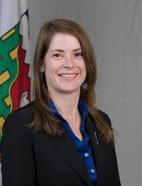Thank you, Mr. Speaker. The beautiful autumn season is upon us. This is a time for harvesting, storing away our summer items as we prepare for colder months ahead. It is a time of wrapping up projects, to make room for new work and new stories. We end one season with a sense of gratitude for the memories we have created and look forward to making more over the coming months. However, for many, the fall season is a stark reminder of the time when children's voices full of play and laughter ceased to be heard in their community. Fall was the time when children, as young as three years old, were forcibly removed from their loving homes - homes where they were nurtured by parents, grandparents, and extended family members; homes where they spoke their language, harvested their food, honoured their culture in ceremony, and had laws and teachings of their own. Children were taken away by boat, plane, or vehicle and placed in residential schools far away. Parents were arrested if they did not hand over their children.
The Indian Residential School system was designed to assimilate, to "kill the Indian in the child" by removing them from all connection to family and culture. Established by the federal government and run by the churches, the very people charged with the care and handling of all students, subjected them to every abuse possible. And many did not return home.
Marking September 30th as a National Day for Truth and Reconciliation is one small gesture that has been made in the attempt to begin righting the wrong inflicted on the Indigenous people of Canada, who were here long before the first colonizer ever set foot on Turtle Island. It is important that we take it upon ourselves as settlers and newcomers to learn about the legacy of these institutions. We must create spaces for dialogue with our families and friends, educating that this isn't something historical. Something of the past. In fact, Mr. Speaker, residential schools were in existence as recently as 1996.
The trauma from these institutions is rippling through our communities, and we owe it to everyone to learn what this day represents so that we can all be part of the process of healing and reconciliation. I stand here today with love and respect to honour all former students of residential schools, their families, and communities. And in memory and honour of all the children who did not return home. May this never ever happen again. Thank you, Mr. Speaker.
